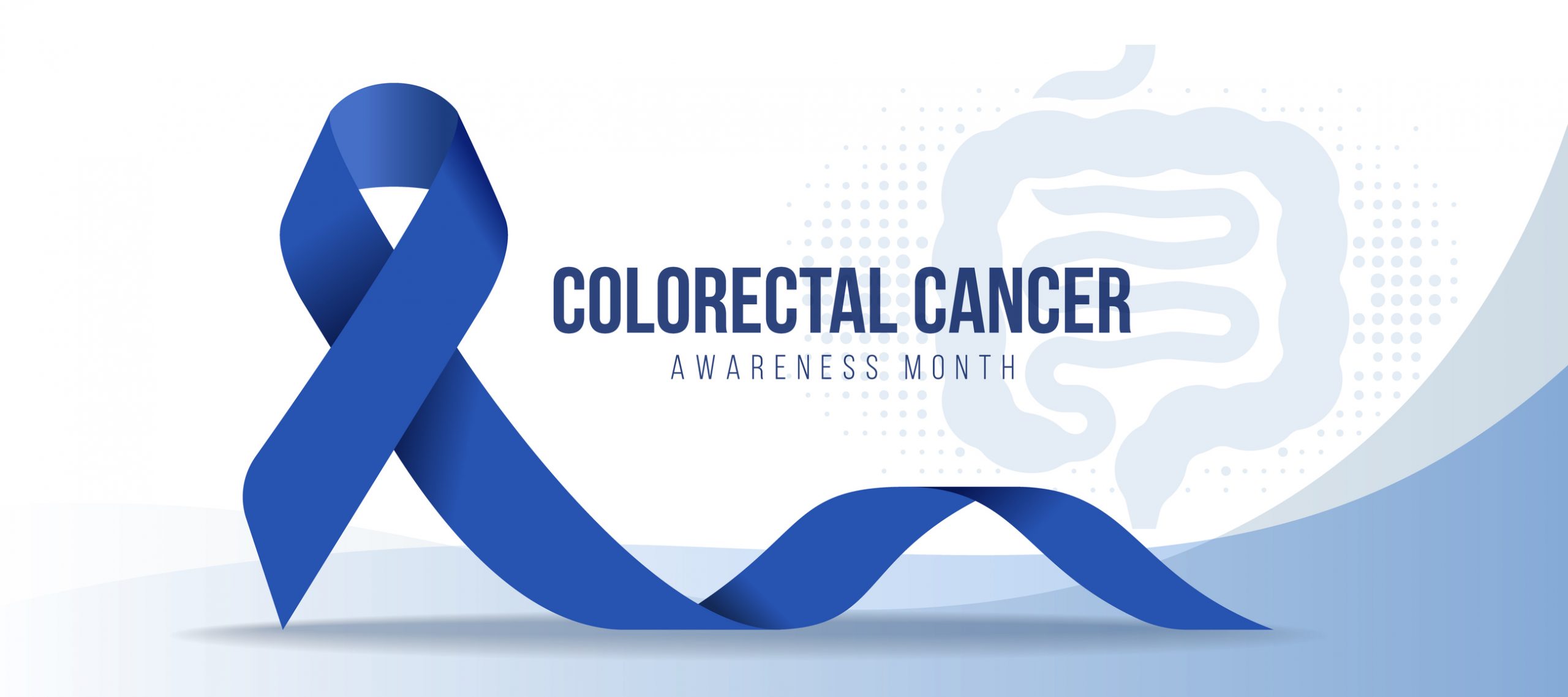This Awareness Month, Get Informed, Get Screened, Get Proactive: What You Need to Know to Combat Colorectal Cancer.
As the calendar turns to March, physicians, patients, and advocate groups turn their attention toward the prevention and treatment of colorectal cancer. Colorectal cancer (CRC) impacts the colon or rectum – and is the second deadliest cancer impacting both men and women in the United States, according to the American Cancer Society (ACS).
Former President Bill Clinton formally established March as National Colorectal Cancer Awareness Month in February 2000 to highlight colorectal cancer and encourage screenings. As CRC rates continue to hold steady into 2024, the focus shifts towards emphasizing prevention strategies, understanding personal risk factors, and screening for early detection.
How Common is Colorectal Cancer?
In 2023, the ACS predicted more than 106,000 new cases of colon cancer and 46,000 of rectal cancer, combining for over 150,000 newly diagnosed cases of colorectal cancer annually. Ultimately, excluding skin cancers, CRC is the third most commonly occurring cancer in the United States.
On a more hopeful note, the collective impact of greater screening compliance, improved treatment plans, CRC awareness campaigns, and less smoking has led to a 57% decline in CRC death rates between 1970 and 2020. For those aged 50 and older, CRC diagnosis rates have dropped by 30% since 2000 – largely thanks to screening advances allowing for precancerous polyp removal and early cancer detection when survival odds are high.
While over 1.5 million CRC survivors live in the U.S. today, and rates remain in decline, experts caution that the downward trend has slowed over the past decade. CRC incidence rates are now dropping approximately 1% and mortality 2% each year, compared to an annual 3-4% drop during the early 2000s. At the same time, the Centers for Disease Control and Prevention (CDC) say that more than 1 in 3 adults aged 50 to 75 skip screening for CRC. While celebrating progress is important, these discrepancies require ongoing education and awareness to continue driving down CRC diagnosis and mortality rates.
Who’s Most at Risk?
At first glance, CRC may seem an unlikely diagnosis, yet it strikes people of all ages and backgrounds – often when least expected. While certain lifestyle factors – including poor exercise habits, eating highly processed red meats, heavy alcohol consumption, tobacco usage, and obesity – do influence one’s risk of CRC, age is widely considered the most significant risk factor, according to the ACS.
CRC can emerge at any age; however, the likelihood escalates drastically after age 50. Over 90% of CRC cases affect individuals beyond this threshold, with peak diagnosis rates among the 75-79 age bracket. Contrary to common perception, CRC also impacts patients in their 20s and 30s. In recent years, CRC rates have accelerated by nearly 15% among those aged 40-49.
It’s important to note that CRC risk isn’t always visible from the outside in. While some key risk factors like lifestyle and family history of colorectal polyps can increase CRC vulnerability, research shows approximately 75-80% of diagnoses occur in those with no clear predispositions.
What Role Does Family History Play?
Having a first-degree relative (parent, sibling, child) diagnosed with CRC is a well-established risk factor, especially if they were diagnosed before age 60. But what about more distant relatives?
Documenting health histories beyond immediate family – aunts/uncles, cousins, grandparents – helps identify any pattern predictive of higher risk. Certain inherited conditions also predispose people to develop polyps/tumors at much earlier ages.
Those with a strong family history of CRC, polyps, or related cancers should get screened 5-10 years earlier than standard guidelines. They may be referred to genetic testing to identify any underlying syndromes.
Can Colorectal Cancer Be Prevented?
While no single strategy eliminates risk entirely, a 2022 study published in the National Library of Medicine (NLM) found almost half (45%) of all CRC cases could be prevented through healthy lifestyle modifications.
Specifically, this analysis showed that five factors – non-smoking, moderate alcohol consumption, a high-quality diet, physical activity, and maintaining a healthy weight – are associated with substantially lowered CRC risk, even when adjusting for genetic and family history risk factors.
Along with lifestyle changes, preventive screenings and colonoscopies remain one of the best defenses against colorectal cancer.
When Should I Start Getting Screened?
According to Maryland gastroenterologist Joseph Jennings, M.D., “In 2020, the recommendations changed so people with average risk for colon cancer, meaning no family history and no symptoms, should start at age 45.” He highlights further: “The exceptions are for people with a known family history of colon cancer or have certain genetic syndromes that would mean they should start earlier.”
The ACS recommends all average-risk individuals begin regular colorectal cancer screening at age 45, continuing through age 75. As the most visually comprehensive screening test, colonoscopy allows examination of the entire colon and rectum to identify and remove precancerous polyps before they become cancerous. The procedure is considered by experts to be the “gold standard” for CRC screening due to its diagnostic accuracy and precision.
Additionally, as part of a value-based care approach emphasizing prevention, colonoscopies performed for screening are now fully covered under health insurance at no out-of-pocket cost to patients. While the idea of a colonoscopy may seem uncomfortably invasive, patients undergo anesthesia for the duration of the procedure. Most importantly, by finding polyps at the earliest, most treatable stage, colonoscopies offer the best opportunity to intervene through removal before cancer can develop.
According to Fight Colorectal Cancer, CRC cases among those under 50 years of age are set to peak in 2030 at more than 27,000 diagnoses. Discussing your specific screening options with a professional allows you to be proactive regarding early detection and protection. SCA Health encourages all Americans to receive CRC screenings at recommended times and to speak with your doctor about your personal risk factors.
Resources
National Colorectal Cancer Roundtable: https://nccrt.org/our-impact/data-and-progress/
The American Cancer Society: https://www.cancer.org/cancer/types/colon-rectal-cancer/about/key-statistics.html#:~:text=Excluding%20skin%20cancers%2C%20colorectal%20cancer,new%20cases%20of%20rectal%20cancer; https://www.cancer.org/cancer/types/colon-rectal-cancer/causes-risks-prevention/risk-factors.html#:~:text=Being%20older,reason%20for%20this%20remains%20unclear.
Beckers Hospital Review: https://www.beckershospitalreview.com/oncology/4-earliest-signs-of-colon-cancer-in-younger-adults-study.html; https://www.beckershospitalreview.com/oncology/too-few-americans-are-screening-for-colon-cancer.html
Fight Colorectal Cancer: https://fightcolorectalcancer.org/about-colorectal-cancer/general-information/facts-stats/
National Library of Medicine: https://www.ncbi.nlm.nih.gov/pmc/articles/PMC6279591/
SCA Health: https://insights.sca.health/insight/article/improving-the-perception-of-colonoscopy;
SCA Health: https://insights.sca.health/insight/article/the-history-future-of-value-based-healthcare






